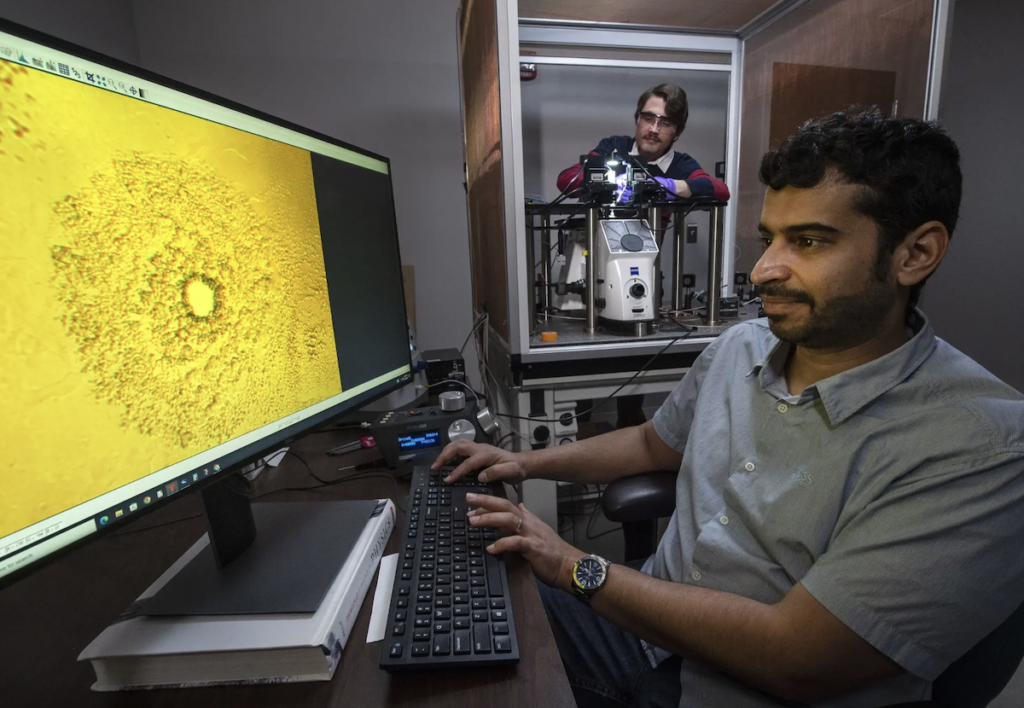
Researchers from Virginia Commonwealth University (VCU) have introduced a novel method for detecting ovarian cancer by identifying specific biomarkers in urine samples. This development could lead to more accurate early diagnoses of the disease. The study, guided by Joseph Reiner, Ph.D., Professor and Chair of the Department of Physics at VCU’s College of Humanities and Sciences, utilized gold nanoparticles and nanopore sensing technology to detect 13 peptides linked to ovarian cancer, including LRG-1, a protein biomarker increasingly associated with the disease.
This new approach offers a significant improvement over mass spectrometry, which, while capable of identifying thousands of peptides, is not easily accessible for clinical use. “This technique could be a critical step forward in achieving early and precise diagnoses of ovarian cancer,” Reiner said. The goal is to enhance diagnostic accuracy and patient outcomes by introducing a method that complements existing diagnostic tools like the CA-125 blood test and transvaginal ultrasound.
The research, set to be published in the ACS Sensors journal of the American Chemical Society, proposes a comprehensive detection strategy. This strategy, along with other relevant clinical information, could provide a more accurate assessment of the presence of early-stage ovarian cancer.
The study represents a collaborative effort involving VCU physics doctoral candidates, faculty from VCU and Rowan University, and contributions from experts in statistical sciences and psychology. Supported by a National Science Foundation grant, the project aims to extend its application beyond ovarian cancer to potentially detect other types of the disease.



